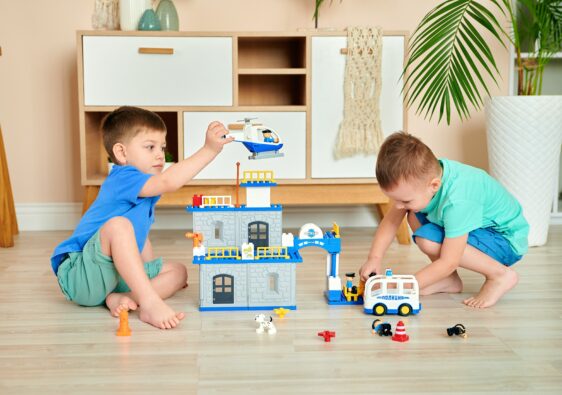Engaging children in educational and enjoyable activities is crucial for their development, especially during their formative years. For parents of children aged 1-5, finding activities that are both entertaining and educational can sometimes be a challenge. However, there are numerous activities tailored to each age group that can stimulate their minds, foster creativity, and enhance their learning experience. In this guide, we’ll explore 25 age-appropriate activities for children ages 1-5, providing parents with a variety of options to keep their little ones engaged and learning.
Activities for Ages 1-2:
- Sensory Bins: Create sensory bins filled with items like rice, beans, or water beads. Let your child explore different textures, colors, and shapes, enhancing their sensory development.
- Story Time: Read simple board books with colorful pictures and repetitive phrases. Encourage your child to point at pictures and make sounds corresponding to the objects or animals in the book.
- Finger Painting: Set up a finger painting station with non-toxic paint and large sheets of paper. Allow your child to explore mixing colors and creating their own artwork using their fingers.
- Shape Sorters: Introduce shape sorter toys where children can match different shapes to corresponding holes. This activity helps develop fine motor skills and shape recognition.
- Music and Movement: Play upbeat music and encourage your child to dance and move to the rhythm. Use scarves or ribbons for added sensory stimulation and coordination practice.
Activities for Ages 2-3:
- Playdough Fun: Provide playdough along with cookie cutters, rolling pins, and other shaping tools. Let your child mold different shapes and figures, promoting creativity and fine motor skills.
- Simple Puzzles: Introduce puzzles with large, easy-to-grasp pieces. Start with puzzles featuring familiar objects or animals, and gradually increase the complexity as your child masters them.
- Nature Walks: Take nature walks in your neighborhood or local park. Encourage your child to observe and collect natural treasures like leaves, rocks, or flowers, fostering an appreciation for the outdoors.
- Water Play: Set up a water table or fill a basin with water and let your child explore with cups, funnels, and water toys. This activity enhances sensory development and provides opportunities for learning about volume and pouring.
- Sorting Games: Create simple sorting activities using everyday objects like toys or snacks. Encourage your child to sort items by color, size, or shape, promoting cognitive skills and classification abilities.
Activities for Ages 3-4:
- Alphabet Hunt: Hide letter cards around the house or yard and challenge your child to find them. Once they find a letter, encourage them to identify it and think of words that start with that letter.
- DIY Crafts: Engage in simple craft projects using materials like paper, glue, and recycled items. Let your child unleash their creativity by making collages, paper plate masks, or handprint animals.
- Pretend Play: Set up a pretend play area with costumes, props, and themed playsets. Encourage your child to engage in imaginative role-playing scenarios, which promote language development and social skills.
- Cooking Together: Involve your child in simple cooking activities like mixing ingredients for pancakes or decorating cookies. This hands-on experience teaches basic cooking skills, following instructions, and promotes healthy eating habits.
- Name Recognition Games: Write your child’s name on paper or use letter magnets to spell it out. Practice recognizing and tracing each letter of their name, helping them develop pre-writing skills and letter recognition.
Activities for Ages 4-5:
- Science Experiments: Conduct simple science experiments at home, such as making slime, creating baking soda and vinegar reactions, or observing plant growth. These experiments promote curiosity and critical thinking skills.
- Number Games: Play games that reinforce counting and number recognition skills. Use dice for counting games, incorporate numbers into scavenger hunts, or practice simple addition and subtraction with everyday objects.
- Building Blocks: Provide building blocks or construction sets and encourage your child to build structures and creations using their imagination. This activity enhances spatial awareness, problem-solving skills, and creativity.
- Outdoor Obstacle Course: Set up a simple obstacle course in your backyard or local park using items like hula hoops, cones, and jump ropes. This activity promotes gross motor skills, balance, and coordination.
- Memory Games: Play memory matching games using cards or tiles with pictures or numbers. Start with a few pairs and gradually increase the difficulty as your child’s memory skills improve.
Engaging children in educational and fun activities tailored to their age group is essential for their overall development. From sensory exploration to pretend play and hands-on experiments, there are countless opportunities for parents to nurture their child’s curiosity, creativity, and cognitive skills. By incorporating these 25 activities into their routine, parents can provide their children with a well-rounded learning experience that fosters growth and enjoyment during their early years.

